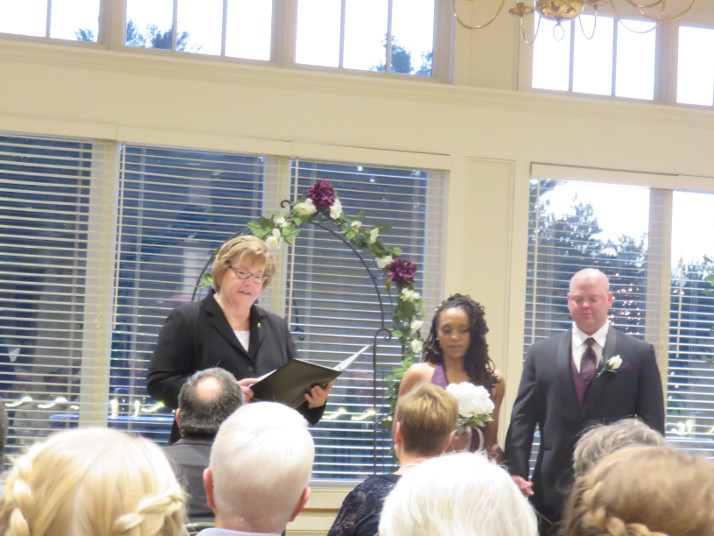The Recessional Song Puts an Exclamation Point on your Ceremony
The Recessional song you select can put an exclamation point on the end of your wedding ceremony and transition you and your guests to the party that follows. While processional, or opening, music tends to be slower, more romantic or stately, you want your recessional song to start strong and upbeat – to carry you down the aisle as a married couple, and get the party started.
You can personalize your recessional song by choosing your favorite music genre and by paying attention to the message the lyrics convey. Here are a few suggestions across the musical spectrum:
Classical (instrumental): “Water Music, Suite 2” – Handel, “Spring” – Vivaldi, “Brandenburg Concerto, Number 1” – Bach
Country: “Feel Again” – One Republic, “Home” – Phillip Phillips, “Love You Out Loud” – Rascal Flatts
Classic Rock: “Signed, Sealed, Delivered, I’m Yours” – Stevie Wonder, “All You Need is Love” – The Beatles, “This Will Be (an Everlasting Love)” – Natalie Cole (start 30 seconds in)
Rat Pack: “Come Fly With Me” – Frank Sinatra, “Fly Me To The Moon” – Frank Sinatra
Contemporary: “Best Day of My Life” – American Authors, “You Are the Best Thing In My Life” – Ray LaMontagne, “Lucky” – Jason Mraz/Colbie Caillat, “Heaven” – Los Lonely Boys, “Marry You” – Bruno Mars
Contemporary Instrumentals: “Lucky” – Vitamin String Quartet performs Jason Mraz, “Waterfall” – The Piano Guys (Jon Schmidt Original)
Whether you choose live or recorded music, instrumentals or versions with lyrics, the music you select to close your ceremony will be remembered. Let it reflect your style, your feelings, and your joy on this important day in your life. If your guests are humming along, tapping their toes, or dancing in their seats, you’ll know you’ve hit the right chord. Your recessional song will mark the end of your wedding ceremony with a joyful exclamation point.

